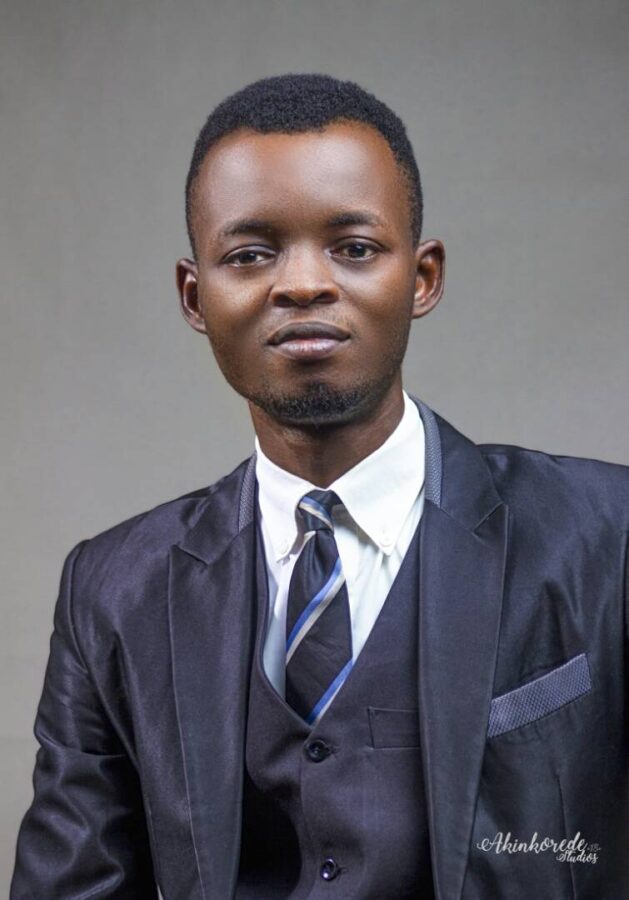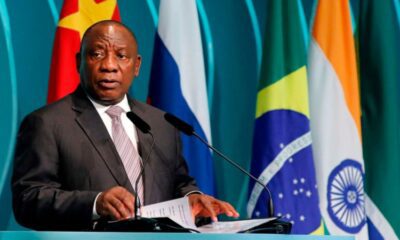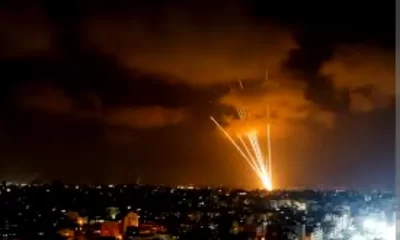Democracy & Governance
The Watercourse Of Media Trial And Its Reputational Injury -By Adeyeye Eyitayo
In other parlance it can be said to be a “psychological jungle justice “which makes a fair trial impossible as well as affects the reputation of a person regardless the result of the trial.

Sometime in 1986, the NTA Newsline repeatedly regaled Nigerians with the confession of a supposed notorious armed robber called Yemoo. A muscular, well-built guy, on Yemoo’s face and neck were all manner of marks, mementos of various physical skirmishes. Each time he appeared on the television, Yemoo who regal of his supposed various robbery exploits. Eventually, he was charged before the Ikeja Robbery and Firearms Tribunal, then headed by Justice Waidi Oshodi, who usually did not waste time in condemning robbery accused to death by firing squad. But after the trial of Yemoo, it was found out that he was tortured to make all those admissions of various robberies. Yemoo actually was a notorious motor park tout and the police felt the only way to get him out of the society was to torture him to accept being an armed robber. Despite his proclivity in condemning accused robbers to death, Justice Oshodi saw through the set-up and rather sent Yemoo to imprisonment. The media trial on NTA was to achieve a purpose but the presiding judge saw through it.
From the ink of its pen to the sound of its microphone, media can build and malign the reputation of a person synchronously. In fact, it can change the government! An unfettered media is a prerequisite to democracy. The media is professed to be one of the strongholds of democracy. It has a broad range utility in the society. Media plays a vital role in molding the opinion of the society and it is capable of changing the whole viewpoint through which people perceive various events.Freedom of media is the freedom of people as they should be informed of public matters. It is apt to infer that the freedom of press is one of the strongholds of democracy.Media trial as a cliché is a media based justice system where the media acting as judge overrides the official “justice delivery system” thereby distorting, prejudicing, sensationalizing, instigating the public and ultimately derailing the ‘justice delivery processes’ and steamrolling the right to fair trial of the accused.
According to Prof. P.K. Fogam, in a paper titled “Crusade against corruption and the effects of trial by the media”, at an event of National Association of Judicial Correspondents (NAJUC),” “Trial is essentially a process to be carried out by the courts. In fact, ‘trial’ is a word which is associated with the process of justice. It is the essential component in any judicial system that an accused should have a fair trial. Trial by the media would therefore be an undue interference in the process of justice delivery”.
In Ndukwem Chiziri Nice v. AG, Federation & Anor.(2007) CHR 218 at 232 Justice Banjoko held that“The act of parading him (the suspect) before the press as evidenced by the Exhibits annexed to the affidavit was uncalled for and a callous disregard for his person. He was shown up to the public the next day of his arrest even without any investigation conducted in the matter. He was already prejudged by the police who are incompetent, so to have such function, it is the duty of the court to pass a verdict of guilt and this constitutes a clear breach of section 36(4) and (5) of the Constitution of the Federal Republic of Nigeria, 1999 on the doctrine of fair hearing.”
Media trial is rife and fast mushrooming in the contemporary times. It is a syndrome which awakens the awareness and consciousness of the public through the media outlets such as, television, radio, and print media… in respect of a pending court case. And it is often said that the court of law is totally different from court of public opinion in rationality and ramifications. Trial by media often arises from high-profile cases which ordinarily by such nature would warrant the interest of the public. The worrying effect of media trial is that it flurries the public in respect of the case before the court and as such interrupts the normal course of justice
In other parlance it can be said to be a “psychological jungle justice “which makes a fair trial impossible as well as affects the reputation of a person regardless the result of the trial. In Abudu v. Nigeria Police Force (unreported Suit No: M/13/2011) the applicant, an electrician, alleged that his wife, who was a factory worker at Sagamu, Ogun State was shot dead by the police on December 12, 2008. In justifying the killing the police claimed that the deceased was the head of a robbery gang that had robbed the Sagamu Branch of the First Bank Plc. Her corpse which was decked with charms and a pistol by the police was paraded before the media. In rejecting the misleading evidence of the police the trial judge condemned the iniquitous killing of the deceased and the parade of the corpse. The court proceeded to award the sum of N5 million as reparation to the Applicant.
Democracy gives the people right to be abreast of current political, social-economic and cultural life as well as the burning topics and important issues of the day to enable them form opinion. It is the opinion which gives out thier view about the activities of the government. To achieve this objective people need a clear and truthful account of events, so that they may form their own opinion offer comments and viewpoints on such matters and issues.The sacrosanct constitution of the federal republic of Nigeria, particularly Section 39 CFRN guarantees the freedom of the press.
Similarly, article 6 of the United Nations Article 6 of the UN Basic Principles on the Independence of the Judiciary states that the judiciary is entitled and required “to ensure that judicial proceedings are conducted fairly and that the rights of the parties are respected.” Foreign instruments such as the International Covenant on Civil and Political Rights (ICCPR), also provides that “everyone shall be entitled to a fair and public hearing by a competent, independent and impartial tribunal” in the determination of any criminal charge or in a suit at law. The freedom of speech and expression and consequently the freedom of press also finds place in International Charters like Article 19 of ICCPR and Article 10 of the European Convention on Human Rights.
Flowing from this backdrop, it can be affirmed that the freedom of speech as well as the liberty of the press is ultimately guaranteed by the extant laws. However, freedom of the press is not absolute as there are instances where unethical expressions of the press may be subjected to check and xrayed.
Frivolous interference of the press in the dispensation of justice has to be discountenanced by the court. The media cannot be granted a free hand in the court proceedings as they are not some sporting event. The media cannot be allowed freedom of speech and expression to an extent as to prejudice the trial itself. Speaking on behalf of the Committee, Dr. B.R. Ambedkar expressed that, “the media has no special rights which are not to be given or which are not to be exercised by the citizen in his individual capacity.”
How many Nigerians are similarly aware that Mrs Patricia Etteh, a former Speaker of the House of Reps, who was hounded out of office for alleged corruption, was subsequently discharged and acquitted by the court after a long trial? The woman was tried and convicted in court of public opinion. One needs once again to emphasise the need to steer clear of media trial, as there is a need to balance this with the right of the accused to a fair trial, particularly regarding pre-trial publicity, otherwise known as PTP.
The rights of individuals are protected from actions of the media through libel law, invasion of privacy law, and guarantees of a fair trial. There is often a conflict between an individual’s right to a fair trial and the media’s right to cover that trial. The Supreme Court of the United States of America has generally ruled that the judge, not the press, is responsible for guaranteeing the defendant a fair trial. The Court has also ruled that protection of the right to a fair trial should require as few limits on the freedom of the press as possible.
It is worth saying that the court of public opinion is an alternative crowd-enabled system of justice.
Adeyeye Eyitayo Is a budding lawyer and PR enthusiast.


















